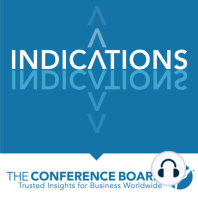18 min listen

US Labor Shortages: Why they are happening and the challenges they pose for companies
FromIndications
US Labor Shortages: Why they are happening and the challenges they pose for companies
FromIndications
ratings:
Length:
16 minutes
Released:
Feb 26, 2020
Format:
Podcast episode
Description
This is the first episode in a 3 part series based on The Conference Board report “US Labor Shortages: Challenges and Solutions.” In this first episode, Gad Levanon, Head of The Conference Board Labor Markets Institute, and Frank Steemers, Associate Economist, discuss why we’re seeing labor shortages economy wide and the implications for companies and workers. Labor shortages are having a strong impact on the US economy. A perfect storm of labor market conditions—including a stagnant working-age population due to massive retirements and disappointing labor force participation of key demographics—have led to a shrinking number of available workers without a college degree. As a result, labor shortages in blue-collar and manual services occupations are now more real than ever. Companies hiring these workers are facing the most severe challenges in recruiting and retaining their workforce. On the flip side, tight labor markets are a boon for workers. US blue-collar and manual services workers have experienced improved job satisfaction, as wages rise and wage inequality shrinks.
Released:
Feb 26, 2020
Format:
Podcast episode
Titles in the series (99)
CEO Confidence Falls Sharply amid COVID-19 Crisis: Amid the fallout from COVID-19, confidence among US CEOs has declined sharply. Join this podcast with Conference Board CEO Steve Odland and Chief Economist Bart van Ark to learn what the newest numbers show, and whether there is any optimism for the... by Indications